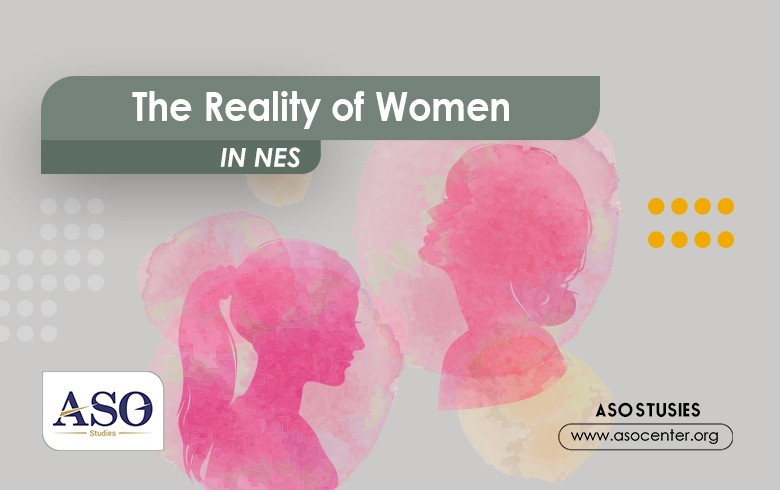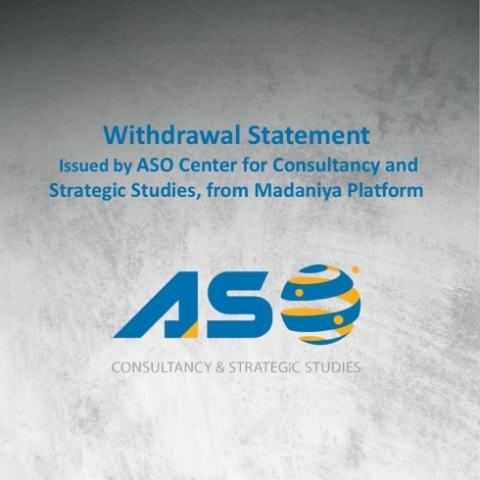

The Reality of Women in NES
2020-11-24
The issue of women is considered one of the most problematic and important issues, particularly in societies that witness complex contexts like the Syrian society. In addition to inconsistent religious, tribal and secular organizations that consists the deep structure from which the prevalent visions and orientations on women's beings and systems of their rights and freedoms on which most of the behaviors of women are built in the process of their lives. Despite the differences in these systems, as well as the different components that make up the Syrian society fabric, and the different cultural heritage, customs and traditions, they share the same view of women, albeit to varying degrees, as a feeble being, subordinate to men and under their care and guardianship.
The Syrian constitutions perpetuated discriminatory visions and stereotypes towards women as they were derived from the Islamic religion, the legislative source of the Syrian constitution, its laws and legislations. And this is obvious in personal status and penalties laws. Despite Syrian women possess the right to elections and run for office, assumed senior leading posts in the country, received ministerial portfolios and participated in the membership of the People’s Assembly. Women proportion in the Syrian People Assembly in 2016 reached 24 out of 250 members with a percentage not exceeding 9.6 percent1. Yet this participation remained a shape and did not influence the change of Syrian women image, rather the traditional social nature carried on controlling their existence pattern and the patriarchal system continued the control of their social, economic and political choice.
At the same time, Syrian laws and legislations were not immune to this view, but rather perpetuated the traditional culture and discriminatory vision against women, which was particularly evident in both the Personal Status Law and the Penal Code. Despite the access of women to senior leadership positions, receiving ministerial portfolios and being elected to the People's Assembly, their participation remained a form and did not reflect their identity and aspirations, and did not give them the ability to participate in real decision-making.
In addition, the media institutions and educational curricula did not include the issue of women in their agendas and programs in order to raise societal awareness and change the concepts and stereotypes that prevented their independence and effectiveness in various aspects of life, but rather contributed in many cases to the consolidation of negative concepts and behaviors related to them.
These concepts were loosened after the launch of popular protests against the Syrian government in 2011 as women participated in the protests effectively, the gradual establishment of feministic civil organizations, and a number of local media institutions that are addressing women, immigration from Syria that contributed to the disintegration of the Syrian family, and thus the occurrence of a breach in the prevalent social and patriarchal system.
Yet the political reality of Syrian women remained the same, as women participation was not effective during peace sessions and political conferences that were sponsored by UN and that are based on civil principles and international treaties and charters that are concerned with human rights. They did not have the opportunity to participate in decision-making, but remained in their marginal because of the intransigence of political parties in adopting the social patriarchal speech with regard to women representation and their participation in decision making.
These concepts declined after women were involved in the public sphere and participated in the popular protests in 2011, and the dialogues and conferences that dealt with the feminist reality in Syria increased, based on civic principles and international charters and covenants on human rights. However, they were unable to comprehensively, embody the visions and aspirations practically on the ground. It also, remained confined to the theoretical framework, which in many cases was merely a formal facade of openness and civility in front of Western society and international organizations, in light of calls and pressures to advance the status of women and increase their participation in public life, at all levels.
Table of Contents:
Introduction:
The Social Reality:
The Political Reality:
Women in Charter of Social Contract:
Women’s Institutions and Organizations in NES:
- Women's Council:
- The Star Congress (Kongra Star)
- Women's Committee in NES:
Conclusions and Recommendations:
References:
To read the full report, please click on download
Download


